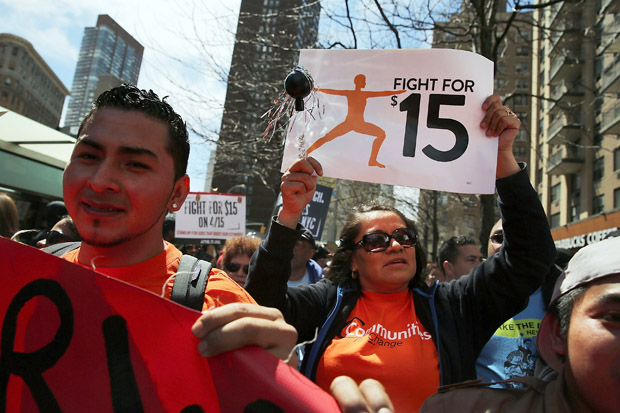Video: The Evolution of 2015’s Minimum Wage Fight

Low wage workers, many in the fast-food industry, join with supporters to demand a minimum wage of $15 an hour on April 15, 2015 in New York City
Seattle’s much-anticipated $15 minimum wage law went into effect this month, and activists are hoping they can convince their cities, or the federal government, to do the same for all wage workers.
It’s been one of the predominant issues of 2015: In February, Wal-Mart announced it would increase the wages of half a million employees to $9 an hour.
Weeks later, McDonald’s announced it would also raise pay for workers. The hike will mean about $1 above the local minimum wage, for an average of $10 per hour by the end of 2016.
Though not all employees will be affected by the hike — local franchise owners can decide whether to opt into the program — the changes for employees, which also include paid time off, could trickle down to other businesses, our April 3 panel said.
But though companies have acted on minimum wage — and President Barack Obama signed an Executive Order to raise the minimum wage to $10.10 for federal contractors — can we expect the same from Congress?
It’s not impossible, but not likely, either, despite a growing “Fight for $15” movement that is spreading across the country, our panel said April 17.
More on the issue:
Protests For $15 Minimum Wage Are Heating Up
The Minimum Wage: To Raise Or Not To Raise?
13 Companies That Aren’t Waiting For Congress To Raise The Minimum Wage


